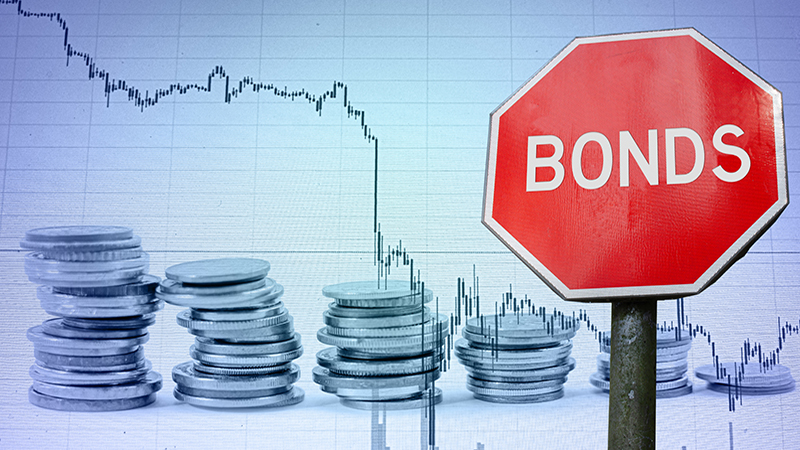Investors are enamoured by the high yields available in bond markets, but they should be paying closer attention to the troubles brewing in credit spreads, according to American Century Investments managers Jason Greenblath and Joyce Huang.
Yields have been pushed up by rising interest rates and investor have flooded to the space to lock in these higher rates – interactive investor recently revealed that fixed income holdings have tripled over the past two years thanks to this phenomenon.
But focusing on yields is too surface level, according to Huang. She said that credit spreads give a greater indication of risk and they are at historically tight.
This means investors are getting a similar return on corporate bonds compared to more secure areas of fixed income such as treasuries.
“Credit spreads are near historic tights, so a lot of people just see the headline yield and think, ‘this is a no brainer, let me get this’. But then if you look at the compensation you’re getting to invest in corporates over treasuries, it’s very little, so there’s not a lot of room for mistakes,” Huang said.
“If credit spreads do widen – and we expect there to probably be a credit spread widening – investors will suffer some pain from that, even if they have a very attractive headline yield. So there are opportunities, but you have to be very careful about where you are in the market and which issuers you’re buying from.”
Her and Greenblath only predict a mild widening, but say that “given the very low base, even a small increase could be significant”.
“Most people are just looking at yields – a lot of investors aren’t really seeing the potential risk in credit spreads because they’ve been tight for so long and don’t think they’re going to widen much,” Huang added.
“But we’re in a very volatile rate cycle and that can influence credit spreads. For us, there’s so much uncertainty around the geopolitical situation, interest rates, and inflation that the tightness of credit spreads just makes it sort of iffy. And I think a lot of people are far too blase about it.”
See also: Morningstar: Fixed income attracts €25.7bn net inflows while equities bleed €1.8bn
The portfolio managers agree that credit spreads are reaching an “inflection point,” but they “don’t see a lot of disruption in the near term”.
One of the biggest potential catalysts that could trigger a widening is an increase in unemployment in the US. And now that salaries are nearing their peak, that point could be approaching, according to Greenblath.
“Salaries are now elevated and very hard to cut, but what you can cut is the workforce, so one thing we’re monitoring really closely is unemployment. That is one major indicator as to what happens to credit spreads.”
The upcoming US election could also play a pivotal role in this. Greenblath said that many companies in the US are holding back from launching any mergers and acquisitions (M&A) activity until after they have confirmation on who will be the next president.
“Their incentive [for M&A] is to make the share price go up, and how do they do that? They either grow their earnings or cut their expenses. I think M&A has historically shown that they choose to cut their headcount,” he explained.
See also: 74% of UK investors race to buy bonds ahead of rate cuts
If unemployment increases over the mid-term as Greenblath anticipates, the credit spreads could widen. This is not a major concern for active investors who have factored in this risk and allocated accordingly, but those holding passive fixed income funds are in danger, he said.
Exchange-traded funds (ETFs) and other passives tracking fixed income markets leave investors highly exposed to bonds that could tumble if spreads widen.
These products have become popular as fixed income became a more appealing asset class, but those investing in them often forget that they do not work in the same way as the more dominant equity market trackers, according to Greenblath.
“I think sophisticated investors understand that fixed income is more complicated [than equities] and want active fixed income,” he added. “So while money is flowing into passive in this tight spread environments, active certainly plays an advantage because there are market mistakes out there.
“Just because the economy is growing and everything seems okay, it doesn’t mean there aren’t problems in the market that we as active managers can avoid.”









